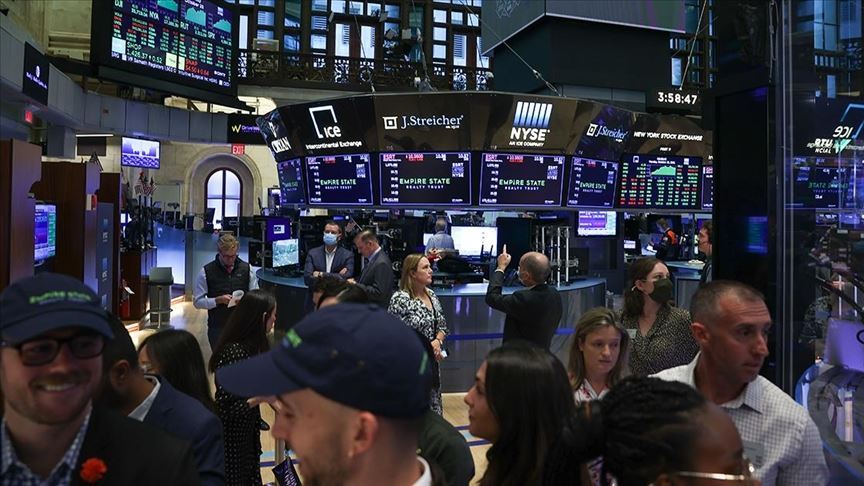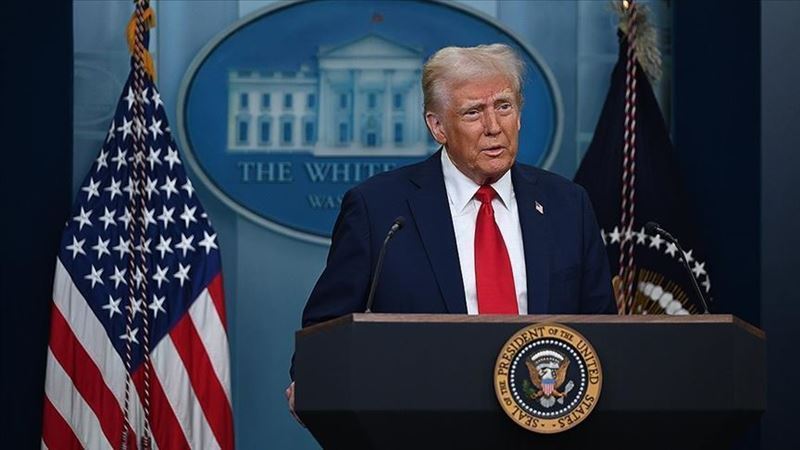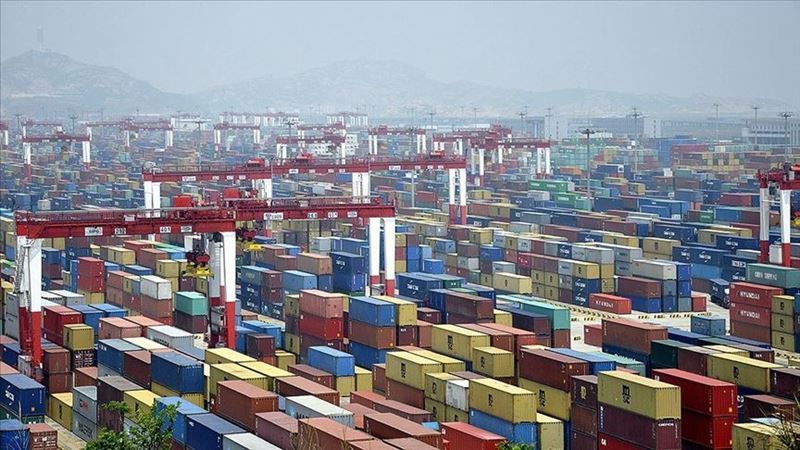While the costs of Russia's attack on Ukraine are increasing day by day, the volatility in asset prices continues after increasing uncertainties.
At the weekend, western countries agreed to remove the Central Bank of Russia and the country's important banks from the SWIFT system.
Russian President Vladimir Putin responded to this step by ordering the Russian military to put its deterrent forces into a special warfare mission, while the Russian army's deterrent powers include nuclear weapons and hypersonic missiles.
Analysts noted that it is expected that the companies that carry out trillions of dollars in Russia's transactions outside of the SWIFT system are expected to have very negative consequences for the Russian economy, and stated that it is possible that the partnerships of these organizations abroad will also suffer greatly.
While the Central Bank of Russia announced that the money and foreign exchange market opening was postponed to 10 o'clock, it also temporarily banned the sale of Russian securities on behalf of foreign customers.
The European Union (EU) High Representative for Foreign Relations and Security Policy Josep Borrell announced that they will donate 500 million Euros worth of weapons and military equipment to Ukraine and that EU countries will send warplanes.
President of Ukraine, Vladimir Zelenskiy, announced that they will hold talks with the Russian delegation on the Belarusian border without preconditions, while the Ukrainian army stated that it blocked the attempts of Russian military units trying to seize a city near Kyiv.
While these developments brought about an upward trend in commodity prices, the ounce price of gold started the new week at $ 1,911, 1.2 percent above the previous closing, and the barrel of Brent oil at $ 99.1 with an increase of 5.2 percent. The US 10-year bond yield decreased by 7 basis points to 1.9 percent.
On Friday, the S&P 500 index gained 2.24 percent, the Nasdaq index gained 1.64 percent and the Dow Jones index gained 2.51 percent on the New York stock exchange. In the USA, index futures contracts started with a decrease of more than 2 percent on the first trading day of the new week.
While the intense news flow after the developments between Russia and Ukraine in Europe occupied the agenda, the President of the European Union (EU) Commission Ursula von der Leyen announced that they would close the airspace of the Union to Russian planes.
The EU Commission also announced that for the first time in its history they will finance the purchase and delivery of weapons for a country at war, while European states and companies continue to take steps against Russia.
Finally, the Norwegian Wealth Fund decided to stop investments made in Russia, while international energy company BP announced that it would sell its 19.75 percent stake in the Russian oil company Rosneft. Norwegian energy company Equinor has also announced that it will start exiting joint ventures in Russia and stop new investments in the country.
On the other hand, it was announced that the energy ministers of the EU member states will hold a meeting today.
Euro/dollar parity is currently finding buyers at 1.1150 after starting the new week with a decrease of 1.1 percent with these developments.
On Friday, the DAX index in Germany increased by 3.67 percent, the FTSE 100 index in the UK by 3.91 percent, the CAC 40 index in France by 3.55 percent and the FTSE MIB 30 index in Italy by 3.59%. European indices started today with a loss of more than 2 percent.
A mixed trend is observed in Asian stock markets today with the aforementioned developments.
Analysts stated that especially the concern that the increase in commodity prices might adversely affect Asian economies put pressure on the stock markets, while the high liquidity injection of the People's Bank of China limited sales.
According to the macroeconomic data announced in the region, industrial production in Japan fell 1.3 percent in January, falling short of expectations, while retail sales exceeded expectations with an annual increase of 1.6 percent.
While the Nikkei 225 index was flat in Japan near the closing, the Shanghai composite index in China lost 0.14 percent and the Hang Seng index in Hong Kong lost 0.80 percent. South Korea's Kospi index rose 0.47 percent.
Domestically, on the last trading day of last week, the BIST 100 index increased by 5.46 percent to 1,952.40 points, while today, with the developments between Russia and Ukraine, domestic eyes turned to the fourth quarter growth data of 2021.
At the weekend, Foreign Minister Çavuşoğlu said that the situation in Ukraine had turned into a "war" and that they would "transparently implement all the provisions of the Montreux Convention".
Economists participating in AA Finans' expectation survey expect the Gross Domestic Product (GDP) to grow by 8.7 percent in the 4th quarter of 2021.
After closing at 13.7954 with a decrease of 1.7 percent on Friday, the Dollar/TRY is trading at 14.10 at the opening of the interbank market today.
Today, foreign trade balance in the country, wholesale stocks in the USA abroad, MNI Chicago Purchasing Managers Index (PMI) and Dallas Fed manufacturing index data will be followed.
Analysts said that technically, 1.930 and 1.870 levels in the BIST 100 index are in the support position and 1.980 points are in the resistance position.
The data to be followed in the markets today are as follows:
10:00 Turkey, 4th quarter GDP of 2021
10.00 Turkey, January foreign trade balance
16:30 USA, January wholesale stocks
17.45 US, February Chicago Purchasing Managers Index (PMI)
18:30 USA, February Dallas Fed manufacturing index











Comments
No comment yet.